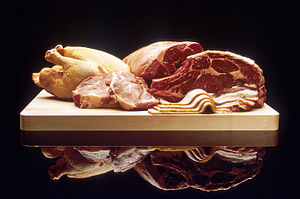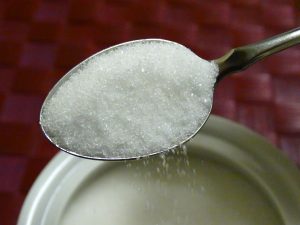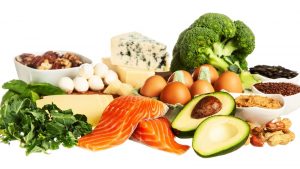By Heide Kennedy, Arizona Farm Bureau Communications Intern
When I used to show livestock, one of the most frequent questions that judges would ask us showmen is, “What is the most important nutrient to be feeding your animal?” At first, what always came to my mind was protein since it’s responsible for building and maintaining cells. But this is actually a trick question because the answer is water! Water is so necessary for life that without it, no other nutrient really matters. This isn’t just true for livestock, it’s true for any living thing, us included! 
So, what makes water so important? Registered dietician Jenny Kroplin says that water makes up about 60% of our bodies, making it absolutely necessary for optimal function. Some of the specific jobs that water has within our bodies include keeping a normal body temperature, lubricating and cushioning joints, protecting the spinal cord, and helping to flush out wastes.
It’s pretty clear how important it is to keep ourselves well-hydrated. But, if we’re honest, sometimes it can be hard to want to drink enough water each day as sometimes it can be a hassle to remember, or for some people, the flavor is just too plain. This is where flavoring your water can come to the rescue!
Adding a little flavor to your water is a great way to improve the taste of your water and subsequently make you more likely to drink more of it. A word of caution, however, is to be sure to watch the amount of sugar that is being added to your water when flavoring. While it might taste good, sweetened beverages often lead to an overconsumption of sugar, as its much easier to keep drinking sweetened drinks rather than continuing to eat sweet foods. Too much sugar can lead to lots of negative health effects such as high blood sugar, pre-diabetes, high triglycerides, weight gain, and inflammation.
But, no need to let that discourage you from flavoring your water at all. There are still lots of healthy ways to spice up your water without adding any sugar at all. Try adding different fresh or frozen fruits and vegetables such as cucumbers, citrus, or berries. Or, add fresh herbs such as mint, rosemary, lemongrass, or basil. You can even play around with combining both fruits and herbs! Tea bags are also a great way to flavor your water as they are pre-made and ready to go!
Drinking enough water and staying hydrated doesn’t have to be boring! Try flavoring your water the next time that you feel like you might be struggling to want to drink it! You’d be surprised about how much it helps!
For more articles about water and hydration, check out the Fill Your Plate blog!





